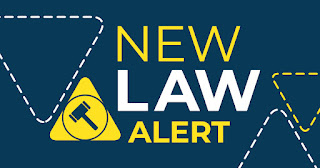On July 6, 2020, Governor Cuomo signed Executive Order 202.48 which affects the validity of many existing executive orders but most notable of which, is that it extends the stay on evictions and foreclosures proceedings to August 5, 2020 for commercial properties, but not for residential properties.
Essentially, Executive Order 202.48 extends the validity of Executive Order 202 up to 202.14, as continued and contained in Executive Order 202.27, 202.28, and 202.38 for another thirty (30) days through August 5, 2020 with some exceptions.
Real estate professionals should be aware that it does not extend the eviction and foreclosure moratorium in place as ordered in Executive Order 202.28 for all residential tenants and mortgagors. However, for commercial properties, an eviction and foreclosure stay is still in place until August 5, 2020.
As such, landlords and lenders should take note of the following:
Landlords and lenders are advised to contact counsel to ensure that all laws, executive orders, and court directives in place due to the coronavirus pandemic are followed. As noted in our recent blog HERE, eviction and foreclosure proceedings now require that the petitioner/plaintiff file additional forms with the commencement documents pursuant to recent directives from Administrative Judge Lawrence K. Marks dated June 18, 2020 and June 23, 2020.
Essentially, Executive Order 202.48 extends the validity of Executive Order 202 up to 202.14, as continued and contained in Executive Order 202.27, 202.28, and 202.38 for another thirty (30) days through August 5, 2020 with some exceptions.
Real estate professionals should be aware that it does not extend the eviction and foreclosure moratorium in place as ordered in Executive Order 202.28 for all residential tenants and mortgagors. However, for commercial properties, an eviction and foreclosure stay is still in place until August 5, 2020.
As such, landlords and lenders should take note of the following:
- Residential evictions may now be commenced but courts are prohibited from awarding warrants of eviction and judgments of possession for tenants experiencing financial hardship for non-payment of rent that accrues or becomes due during the COVID-19 period pursuant to the Tenant Safe Harbor Act. Money judgments may be awarded. For more information, read our blog HERE;
- Residential foreclosure proceedings based on nonpayment due to COVID-19 are prohibited until August 20, 2020 pursuant to Executive Order 202.28;
- Commercial foreclosure proceedings based on nonpayment due to COVID-19 are prohibited until August 5, 2020 pursuant to Executive Order 202.48;
- Commercial evictions based on nonpayment are prohibited until August 5, 2020 pursuant to Executive Order 202.48; and
- Commercial holdover proceedings may be commenced beginning June 21, 2020 pursuant to Executive Order 202.8.










